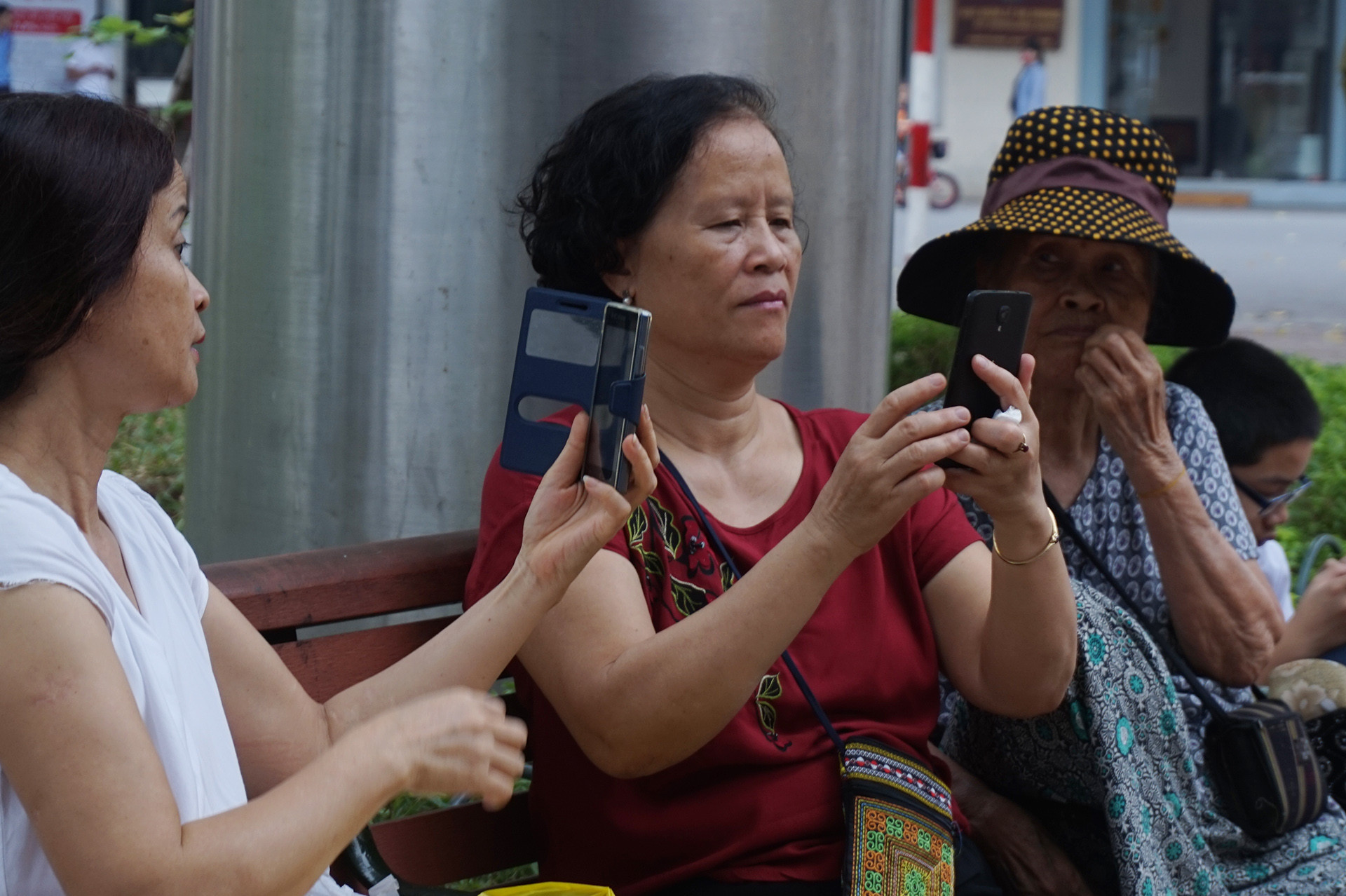
Nguyen Thi Lan (Nam Dinh), currently working in Macau (China), shared her anxiety as her relatives back home keep falling into the spiral of scams. Over 60, Lan’s parents stay home caring for their grandchildren and spend most of their time browsing social media. Their comfortable home and affluent life have unwittingly made them "prey" for sellers of products with unclear origin.
Two years ago, after a diagnosis of joint degeneration and high cholesterol, Lan’s father began searching for health products online. From cereal milk worth VND8 million, advertised as a “diabetes cure,” to unverified supplements, he trusted them all.
Lan recounted the time her father followed online advice to fast to cure diabetes. After just one day, he was shaky and sweating from low blood sugar. Fortunately, Lan noticed via camera and got neighbors to help. “If I hadn’t checked that day, he could’ve been in critical condition,” Lan said.
Despite their children’s pleas, Lan’s parents kept buying products from village seminars and even registered for “free” tours, returning with bags of useless supplements.
“I cried, begged them not to trust online ads, but after a brief pause, they’d buy again the next month,” Lan said.
Similarly, Thuy Hanh (Thach That, Hanoi) found herself in a frustrating situation as her mother is a “fan” of online ad campaigns.
Three months ago, her mother accepted a free dental checkup with door-to-door transport service. At the clinic, she was diagnosed with various dental issues and urged to get ceramic teeth at VND5.4 million per jaw.
“I was just a few minutes late, and they’d already ground her teeth,” Hanh recalled. Her mother also joined free temple trips to Tam Dao, where she was persuaded to buy supplements, returning with bags of pink salt, milk, and pills.
The story of N.T.B.X (78, Long Bien, Hanoi) is even more heartbreaking. Believing online videos claiming red meat causes cancer, she strictly ate only boiled vegetables and sesame rice. As a result, she became malnourished and was hospitalized.
Despite doctors’ advice to eat balanced meals, she remains haunted by online claims that diseases come from food.
“My mother doesn’t believe her children and she only trusts online celebrities,” Mai, her daughter, said.
Recently, social media has been flooded with ads for rapid weight-loss pills, promising results in seven days, with 5-7kg weight loss without exercise or dieting. Many of these products lack clear labeling, medical certification, and are sold cheaply.
Some contain banned substances or active ingredients that directly harm the liver, kidneys, and cardiovascular system. Using these products can lead to acute liver or kidney failure, heart arrhythmias, stroke, mental disorders, depression, digestive system damage, and endocrine issues.
Sophisticated traps
Dr Nguyen Hoai Nam, former lecturer at HCM City University of Medicine and Pharmacy, noted that in the digital age, social media isn’t just for youth but also a “friend” for many elderly people.
Surfing on the internet helps them ease their loneliness. A phone or computer can connect them to the vibrant internet world. Inspirational videos, philosophical posts, or movies make time fly. Colorful, unique products with enticing ads and low prices draw them in.
“Every night, elderly people with age-related ailments struggle to sleep and scroll Facebook out of habit. But they need to know their limits,” Nam, a retired doctor, said.
Behind these conveniences lurk sophisticated scams, leaving many families helpless as parents or grandparents fall victim.
In Vietnam, elderly people endure 15 years of illness on average, with healthcare costs 7-10 times higher than for the young. Fearing burdening their families, they avoid hospitals, taking medicine sparingly and painkillers only when hurting. This makes them vulnerable to “free” online cures, falling prey to scams.
A 2024 Google survey for World Online Safety Day found 90 percent of Vietnamese internet users have encountered online scams. Those over 55 are the most vulnerable, with 49 percent scammed.
The Information Security Department also noted rising scams targeting the elderly. Notably, scam rates are similar in rural (69 percent) and urban (73 percent) areas, and among frequent (69 percent) and infrequent (75 percent) internet users. This shows caution and cyber awareness are key.
To protect parents and grandparents from online traps, Nam suggested families patiently talk and help them to spot false information. Communities and authorities should also boost awareness campaigns. In the future, access to elderly healthcare services will be critical.
Phuong Thuy